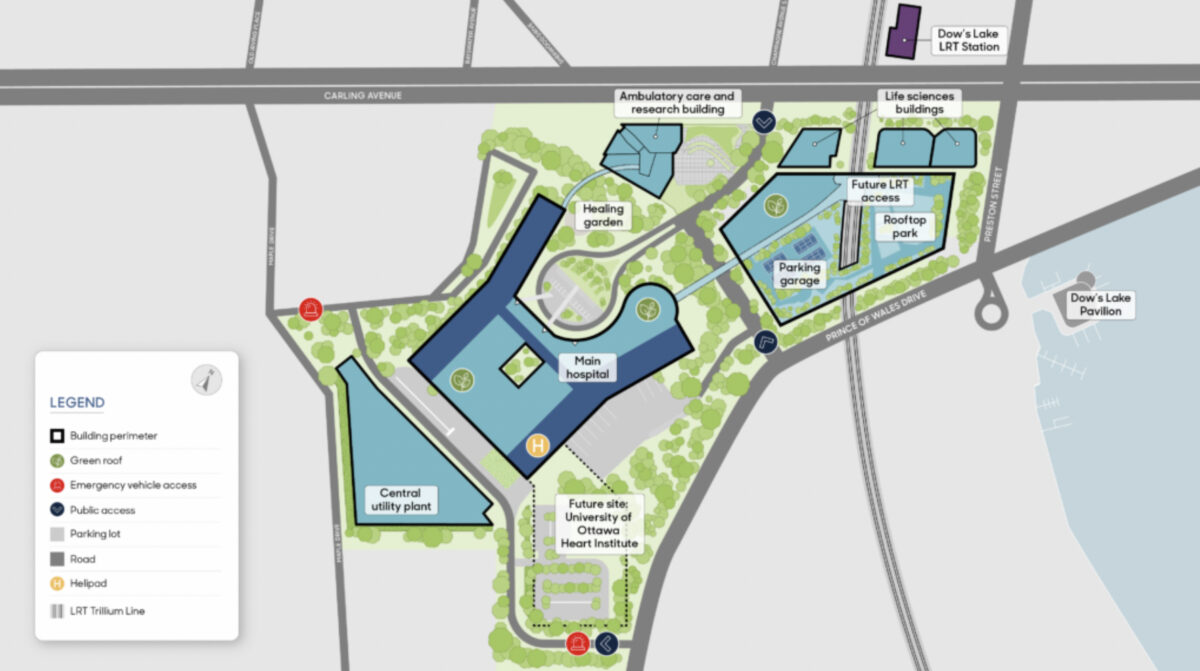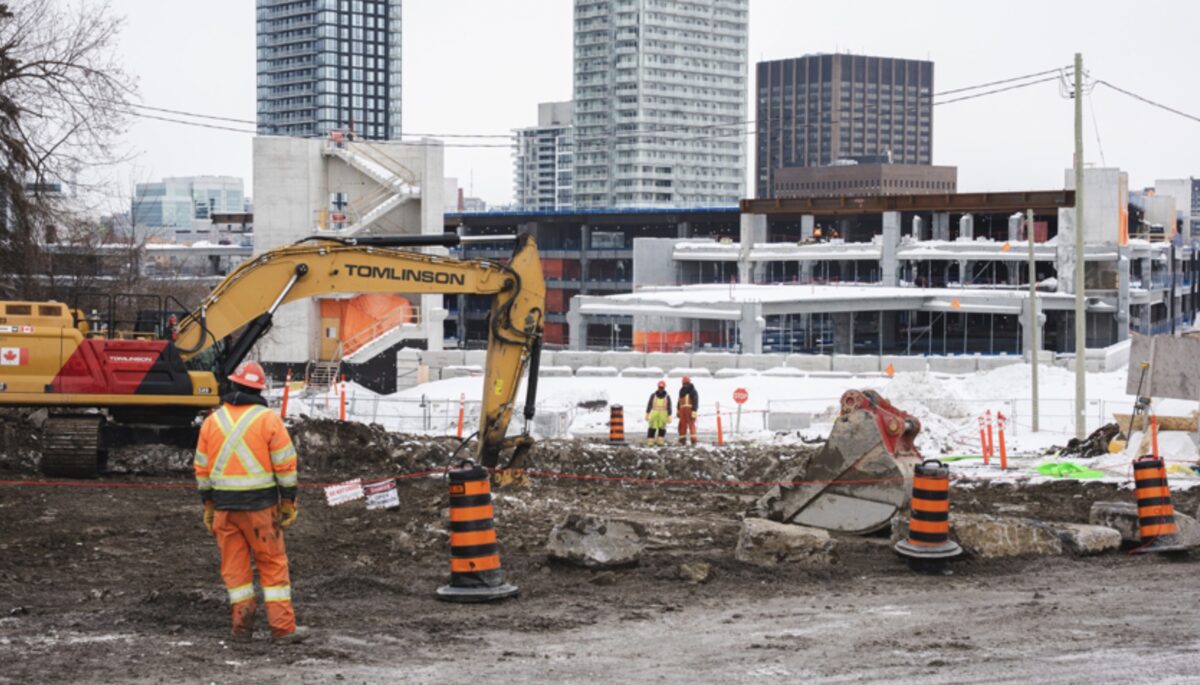As The Ottawa Hospital continues finalizing costs and construction plans for its new Civic campus near Dow’s Lake, the task has been complicated by the uncertain impact of the ongoing controversy around Canada-U.S. tariffs, which began after the January return to the White House of U.S. President Donald Trump.
Meanwhile, though, early-stage preparation of the 50-acre building site — including a push toward completion no later than 2026 of the hospital’s five-level parking garage — continues in the sprawling construction zone at the southwest corner of Carling Avenue and Preston Street.
In March, crews made significant progress laying down essential groundwork for the new campus. The Ottawa Hospital, Infrastructure Ontario and the Ontario Ministry of Health are all involved in a project initially budgeted for $2.8 billion.
The design phase of the hospital project, which is described as a “progressive public-private partnership,” is being carried out in collaboration with The Ottawa Hospital Build Partners, including the construction team — PCL Constructors Canada Inc. and EllisDon Corporation — as well as various architecture and financing partners.

The ongoing review of the project’s budget and construction timeline, which began in 2024, will be factoring in any potential impacts of the US-Canada dispute over tariffs, hospital officials have stated.
Still, construction of the parking garage is progressing smoothly, with two main sections now taking shape, according to a recent update provided by the hospital.
The east side, located near Preston Street and Prince of Wales Drive, has four above-ground levels. The west side, still under construction, will feature five levels — one below ground and four above.
Crews are building connections over the Trillium Line LRT trench to link both sides of the parking garage at each level.
The hospital expects the parking garage to be completed by next year at the latest. The facility will provide about 2,900 parking spaces, including accessible spaces, along with electric vehicle charging stations and 347 secure bicycle spaces. The garage will play a key role in ensuring convenient access to the hospital for patients, visitors and staff.
Work on the garage is just one of the work preparing for construction of the future hospital itself. Andrew Pinet, senior project manager of new campus, says the preparatory work is key to ensuring a smoother process as construction ramps up.

“We’re effectively laying the groundwork logistically to maximize efficiency in the future construction of the main hospital,” Pinet explained in the recent TOH construction update. “Once construction of the hospital begins, it will involve thousands of construction workers, substantial heavy equipment, and all the materials required for such a large-scale project. The preparatory work the team is doing now is very strategic; anything the team can do to streamline logistics will result in a smoother operation from the outset.”
Community engagement — including fundraising — is instrumental in building the hospital’s new campus. Hospital president Tim Kluke recently stated that about $356 million — or 70 per cent of a $500-million goal — has been raised to support research, equipment and academic spaces, all costs at the new campus not covered by government funding.
With 2,800 postsecondary students training at The Ottawa Hospital, the new campus — now expected to open in 2029 — will expand hands-on learning opportunities, especially as Carleton University’s nursing program debuts this fall.
Combined with the opening of LRT Line 2 in early 2025, the project will make it easier for students to access the site once construction is completed — helping to grow the region’s future healthcare workforce and strengthening care in the community.
The Ottawa Hospital has prioritized local and Canadian talent in its new campus project. While international experts are involved, the focus remains on utilizing homegrown workers, materials, and expertise. The project is expected to create around 4,000 jobs, providing a major boost to Ottawa’s economy, Kluke says.
The construction of the new campus has faced community concerns over site contamination, environmental risks and the alignment of project goals with long-term community needs, including potential impacts of the hospital on traffic in surrounding neighbourhoods.




